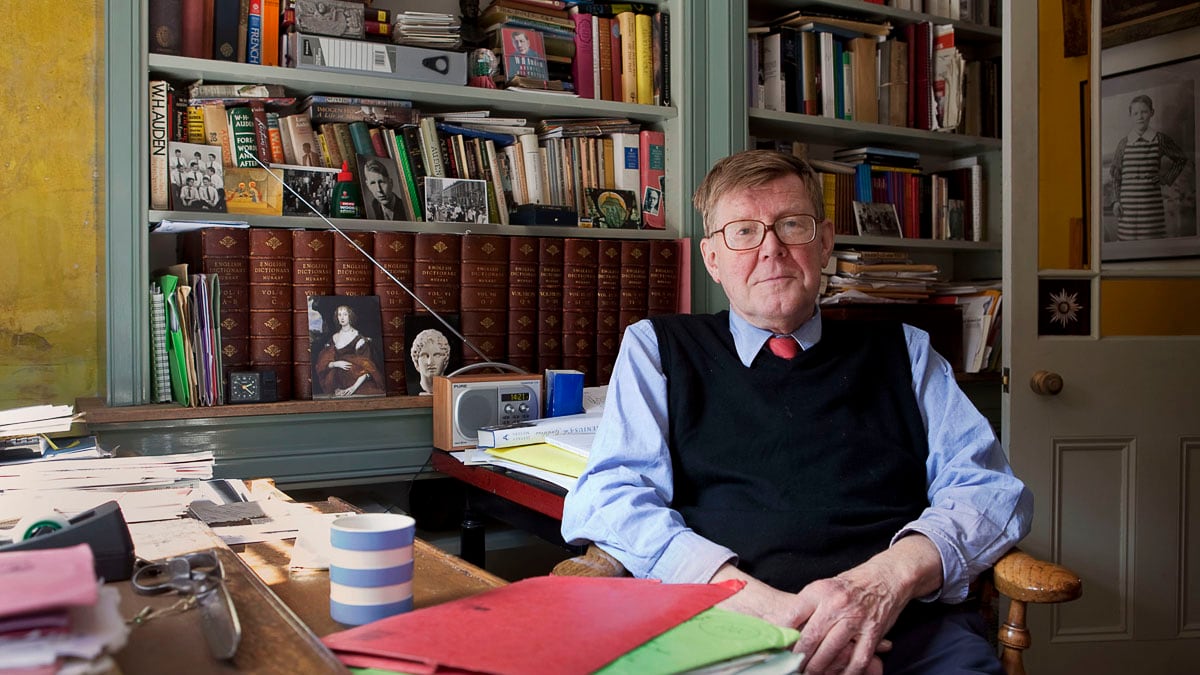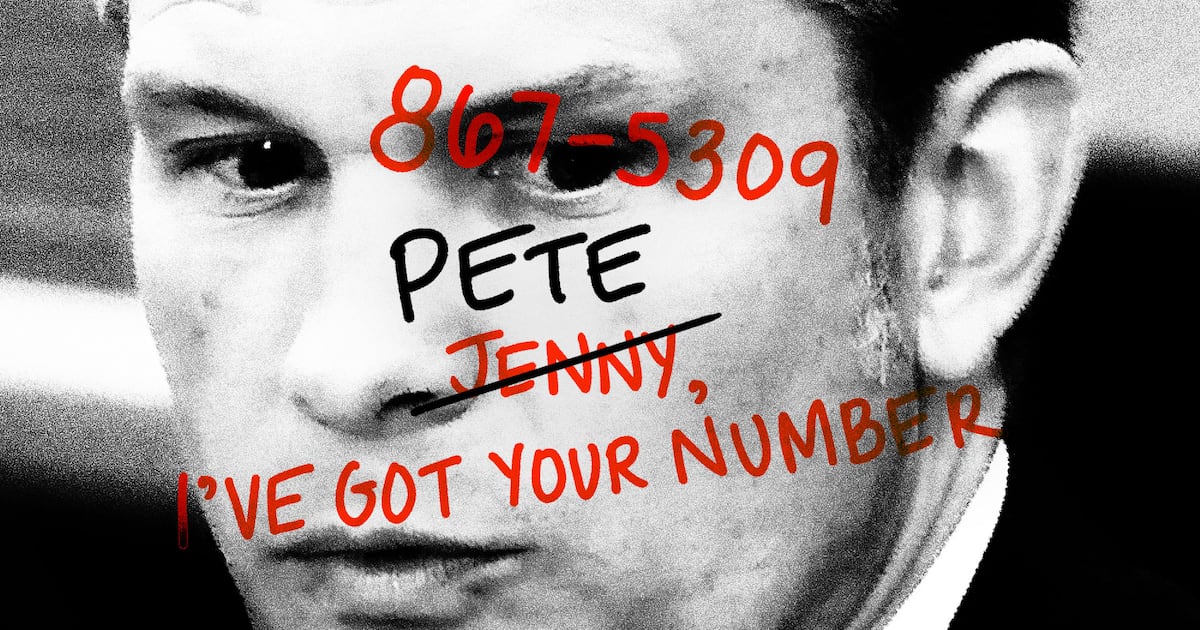As if in direct juxtaposition to the content of the book we’re discussing, Alan Bennett’s Smut, I meet the author and playwright in the comfortably literary surroundings of the London Review of Books Cake Shop in London’s Bloomsbury. He’s both instantly recognizable and yet oddly unassuming. I ask him if he’d like some tea, but they don’t seem to have the simple English Breakfast that he requests. I want to ask, don’t you know this is Alan Bennett? Surely you can find him a teabag. But I don’t, of course, and he politely makes do with a glass of water instead.
In one sense we’re enacting the same distinctly middle-class notion of respectability and worrying (or not, as the case turns out in the first of these two stories) about what other people think. As the title suggests, both stories deal with the subject of sex—sometimes titillating, sometimes predictable—but never quite what we’d expect given the fact we’re viewing events through the eyes of two middle-aged women. Mrs. Donaldson, the heroine of his first story, is a widow not “quite ready to school herself for the dignified solitude” those around her consider “appropriate” to her newfound status. She’s one of the many characters in Bennett’s work who, he explains, “feels they’ve been suppressed or kept down and then suddenly break out.”
“I think that’s a realization that comes with middle age,” he continues. “When you’re young, you think that everyone is concentrating on you. But when you get older, you realize that they’re only really bothering with themselves.”
So, I ask him, does he think his own writing has become less repressed, or at least more open, as he’s got older?
“Well in one way, yes,” he replies, “though if I were to write something that could be put up for the Bad Sex Award that would be ludicrous, I think I can just about get away with this. What’s in the title suggests what’s in the book—something that’s on the edge of being acceptable. If he didn’t like something, my father would say that it was cheeky or smutty,” he reminisces.
And what made him decide to turn his hand to writing smut?
“I enjoy writing something different,” he replies, without any hesitation. “I’ve always been quite well behaved, and I used to feel that that wasn’t my subject, it wasn’t suitable. But I think it’s probably like what happens to old people—I just don’t care what people think.”

It’s widely assumed that Bennett’s more relaxed attitude can be attributed to the cancer he had 13 years ago, but when I ask him about this, he’s not at all convinced.
“People assume it’s the aftermath of that,” he says with furrowed brows, “but I don’t know that it is. That’s the conventional way of looking at it, thinking there has to be some kind of explanation. But the other thing is you do just get bored of being yourself. You want to get into another uniform, as it were.”
Bennett is best known perhaps for his command of his characters voices. As such it makes sense to assume he spends a lot of time observing those around him, but this seems to be another unfounded assumption.
“I don’t go out much, so I don’t see how I can,” he explains. “No, it’s in your head. It’s what you’ve seen when you’re younger, like the language you hear, that’s the language you write in. It lays down a kind of scene and you draw from that.”
He tells me that he finds himself remembering more and more about his childhood as he gets older. Is he disappointed in the current condition of England? “I’ve always been disappointed,” he says with a chuckle.
We talk about the Occupy protests, as he went down to St Paul’s to read to them earlier this autumn. He tells me that when they invited him he “didn’t really want to go”: “I was nervous, but then I thought that’s not a reason not to go.” Nervous seems an odd response to their request, but he explains that he just didn’t feel he had anything to say. It turned out, though, that he had nothing to worry about as when he did turn up a week later, they’d forgotten they’d asked him, and he was left wandering around the tents looking for someone to approach and then when he did read, it “really wasn’t any different to going to speak at Hay-On-Wye or the Edinburgh Literary Festival.”
“It was slightly comic,” he continues in a tone verging on the world weary. “The notion that they were subversive in any sense is farcical. You feared for them because they seemed so innocent, and they couldn’t possibly win, or win what they wanted anyway.”
But you still support them; you think what they’re doing is useful, I ask? “Anything is useful that keeps it in the public eye,” he replies. “This group of people have behaved in a way without thought for society in general and without any shame.”
We talk for a while about library closures, something Bennett is fervently against. He was recently quoted calling it “child abuse,” a comment I ask him to elaborate on.
“People are so stupid,” he explains. “They think the only form of child abuse is sexual abuse—it’s ridiculous. It’s not emphasized enough how important libraries are as places for children who don’t have any of their own space at home. It’s just assumed now that people aren’t poor, but people are poor. The state of the civilization of a community depends on how much can be taken for granted, and everyone should always be able to take for granted free education and free health. After Mrs. Thatcher came in, you weren’t supposed to take anything for granted because apparently it meant you didn’t appreciate it, but that’s rubbish.”
For someone with such strong opinions I’m surprised his work isn’t more overt social commentary. “I don’t look around for social issues,” he confirms. “Plays begin with characters. Obviously, your view of society influences the way you write. For instance, The History Boys is a play about education, but if I had written it as a polemic. it wouldn’t have worked. It works because Hector [the main character] is interesting, and the lives of the boys are interesting, so any social lessons that come out of that are, well, they aren’t incidental, but they aren’t in the forefront.”
Although he’s not working on anything in particular right now, he does write everyday, in longhand, “even though it does waste paper” he admits. He tells me that he bought a computer about two months ago but has yet to take it out of its box. “It sits in the corner of my study like an unexploded bomb,” he says. “I’m not looking forward to using the display though,” he confesses, “when you’re typing and you see it going up on the screen, it’s finished, but I don’t regard it as finished at that stage.”

I’m interested to find out if Smut is the way forward now and ask him if he’s trying to deliberately shock his readers? “I’m 77,” he says with a laugh. “I don’t think in terms of the progress of my writing. I don’t really care what effect it has. Obviously I’m still learning though. I’m still trying to find out how to do it.”
People talk so much today about the short story as a dying art form, it’s intriguing to see these two “long short stories,” as Bennett describes them himself, published together in a single volume. “I don’t think of it as a particular form,” he explains. “I just think of it as something I want to write. I can see when I read something like John Updike’s short stories that they’re a different form of short story, and also John Cheever—he’s a wonderful short-story writer, and that’s a completely different thing. They’re not just short stories that can’t manage to be longer, they really are forms of their own. I’m too old to be wrestling with the form like that,” he jokes. “I run out of steam—these are only short because I can’t make them any longer. I didn’t feel that there was anywhere else to go, so I just stopped.”




